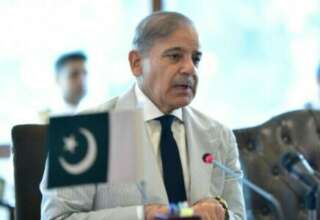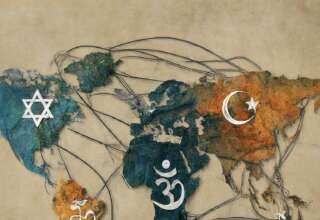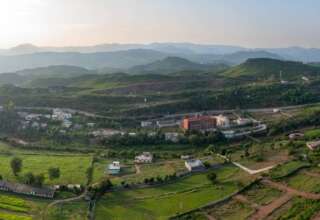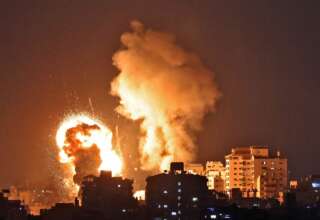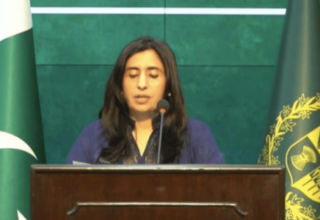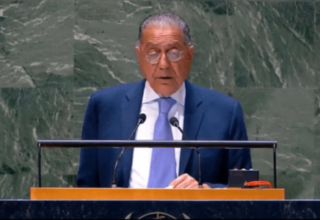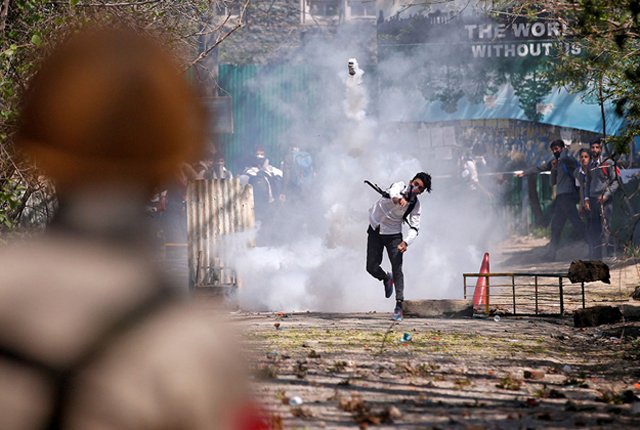
By Muntaha Talat
A picturesque valley between sky-high mountains of Pir Panjal and Karakoram ranges where cool breeze blows and the gushing sounds of water that runs between these mountains provides a symphony that pulls ears and soul together. This is Kashmir – a place called paradise on earth.
However, this is the land where people are dying for freedom and emancipation from colonialist rulers.
The Kashmiris tell horrific tales of the oppressor Indian forces who are killing, maiming and caging the Kashmiris since 1947. For Kashmiris, this paradise has been overtaken by a demon spirit and their own homeland has been turned into a living hell.
The state-sponsored terrorism in Kashmir in the illegally occupied land of Kashmir by the Indian forces is no more hidden from the world and the United Nations – the self-proclaimed organization formed to ensure peace and justice in the world.
Kashmir Committee is a parliamentary body tasked to raise awareness on Kashmir and is led by Mr. Shehryar Afridi, a tribal Pashtun leader who also is minister of state for Narcotics Control and States and Frontier Regions (SAFRON). Unlike his predecessors, Shehryar Afridi has decided to engage youth from Kashmir and Pakistan to build a strong narrative on Kashmir
Though the institution claims to be working for “peacekeeping” in across the world but actually this world body is fast proving itself to keep the prey silent as the predator kills it. Kashmir is the same prey as India dominates its hold and the UN is ensuring that the outcry of the Kashmiris is not heard aby anyone anywhere.
The struggle of the Kashmiris for freedom has a long history though. In 1947, the British rulers decided to divide Hindustan into two states – India and Pakistan. Muslim majority provinces would go to Pakistan while India would have Hindu-majority areas. But the independent states of Hindustan were to be decided on the basis of majority population. Hence, Kashmir – a Muslim majority state – was to be annex with Pakistan.
The British rulers, however, allowed India to enter its forces in Jammu & Kashmir and the Kashmiris launched a freedom struggle and got freed around 30 percent of the Kashmir from Indian occupation. The part is called Azad (Free) Jammu & Kashmir and Gilgit Baltistan.

But Jammu and Kashmir valley still is under Indian occupation. Though India took the matter to the United Nations Security Council and promised a plebiscite to decide the fate of Jammu & Kashmir – a pledge never materialised till date.
Hence, Pakistan and India have fought three major wars but Kshmiris are still awaiting freedom from Indian occupation.
Kashmir’s population is 97 percent Muslim and the Indian occupation over Kashmir is against the will and wish of the Kashmiris. Despite various orders from the international organizations including UNO, India failed to hold an honest plebiscite in the region.
The resistance of the Kashmir youth continued throughout the years in various clashes and skirmishes that resulted in martyrdom of a number of mujahedin. However, situation worsened when on August 5, 2019, following the Israel’s settler-colonial model, Indian Government revoked Kashmir’s special status, thus paving way for a blatant takeover of administrative, political and economic institutions of Kashmir.
Prior to this action, the Indian Government deployed thousands of additional troops, detained hundreds of people, locked people in their homes, and imposed a communication blackout to silence the voices of confrontation from the Kashmiri people.

There is a massive record of human rights violations in the state of Kashmir. Major cases of human abuse that were reported are of abductions, torture to death, illegal detention of innocent youth and renowned Hurriyat leaders, rape, killing of children, elderly people, women, and youth, repression of freedom of speech, closure of mosques, enforced disappearances, use of pellet guns, and raiding and destruction of homes.
But what’s significant here is the firm resolve of Kashmiris to continue their fight for freedom and their commitment to their religious belief. Their identity is Islam, and death does not make them afraid.
Pakistan’s role for raising voice for Kashmir has been unfortunately negligible in the past few decades. However, since the Imran Khan’s government came, and situation in Kashmir aggravated on 5th August 2019, Pakistan started to play an active role and represented Kashmir on diplomatic, political and social fronts.
Kashmir Committee is a parliamentary body tasked to raise awareness on Kashmir and is led by Mr. Shehryar Afridi, a tribal Pashtun leader who also is minister of state for Narcotics Control and States and Frontier Regions (SAFRON).
Unlike his predecessors, Shehryar Afridi has decided to engage youth from Kashmir and Pakistan to build a strong narrative on Kashmir. The primary goal is to highlight the atrocities of Indian forces on innocent Kashmiris and to make the international organization know how India is subjugating Kashmiri voices and is denying its own pledge to hold a transparent referendum where Kashmiris can exercise their right to choose between Pakistan and India. The Committee is determined to work with think-tanks, academia, policymakers, and activate digital networking for developing a new narrative over Kashmir.
As we all know that war is not a solution to the problem, youth must join hands with Shehryar Afridi to raise global awareness on Kashmir. Although Pakistan is fully equipped with the capabilities of a war, yet we as a responsible state, believe in maintaining peace in the region and resolving disputes and conflicts through peaceful means.
Wile Pakistan and India are nuclear states, a war between the two can directly wipe off the human race without any discrimination and may have impact beyond region and borders. Therefore, Pakistan stands committed to resolve Kashmir conflict through peaceful means. However, if we are forced into a war, we will not take a step back.
Note: The author is a student. She can be reached at muntahak1997@gmail.com


